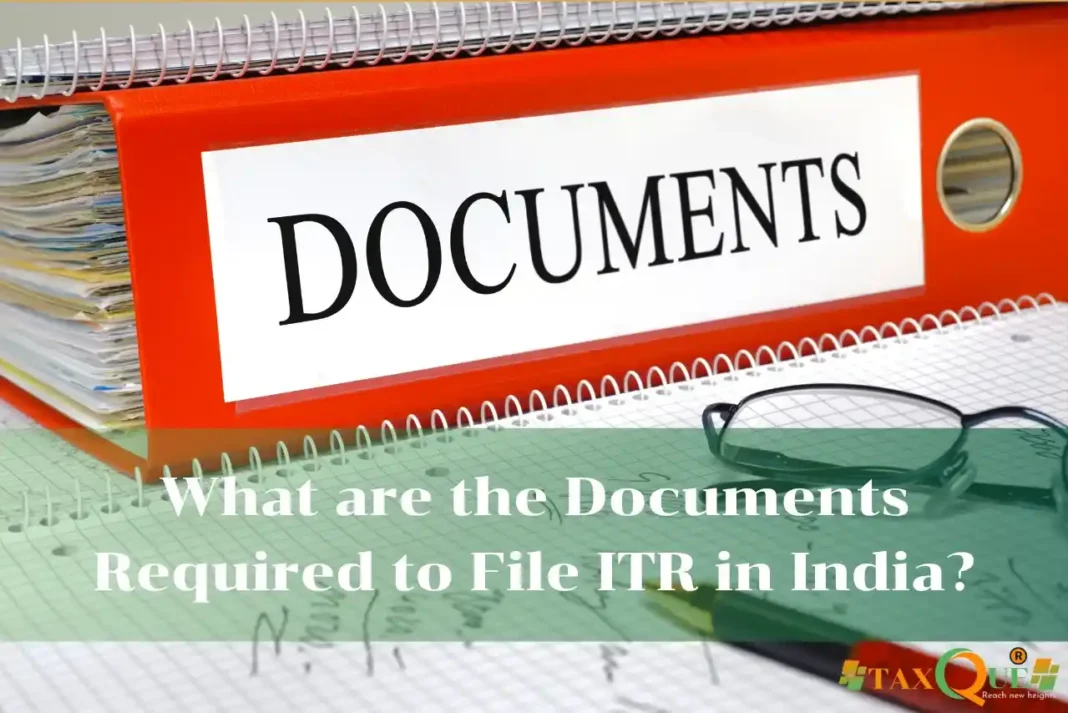Introduction
Filing income tax returns (ITR) is an essential responsibility for many individuals and businesses in India. Understanding the eligibility criteria for income tax filing online helps you determine whether you need to file and how to do it efficiently. With the rise of digital platforms, online tax filing has become simple and accessible. In this blog, we’ll explain who needs to file income tax returns, the eligibility conditions, and how platforms like TaxQue can make the process seamless.
Who Needs to File Income Tax Returns?
The Income Tax Act, 1961, outlines specific conditions under which individuals, Hindu Undivided Families (HUFs), businesses, and other entities must file income tax returns. Below, we break down the eligibility criteria for income tax filing online based on income, age, and other factors.
Table of Contents
1. Income Thresholds
The most common criterion for filing ITR is your annual income. The income tax department sets basic exemption limits, and anyone earning above these limits must file their returns.
| Category | Basic Exemption Limit (FY 2024-25) |
|---|---|
| Individuals (below 60 years) | ₹3,00,000 (New Tax Regime) |
| Senior Citizens (60-80 years) | ₹3,00,000 (New Tax Regime) |
| Super Senior Citizens (80+ years) | ₹5,00,000 (New Tax Regime) |
| HUFs | ₹3,00,000 (New Tax Regime) |
- If your total income (before deductions) exceeds these limits, you must file an ITR.
- Even if your income is below the exemption limit, filing ITR may be necessary to claim refunds or carry forward losses.
2. Other Eligibility Criteria for Income Tax Filing Online
Apart from income thresholds, the following conditions make ITR filing mandatory:
- Foreign Income or Assets: If you earn income from foreign sources or hold foreign assets (including bank accounts or property), you must file ITR, regardless of income level.
- Deposits in Bank Accounts: Depositing more than ₹1 crore in one or more current accounts or ₹50 lakh in savings accounts in a financial year requires ITR filing.
- Business or Professional Income: If you run a business or profession and your gross receipts exceed ₹60 lakh (for businesses) or ₹15 lakh (for professionals), filing ITR is mandatory.
- Tax Deducted at Source (TDS): If TDS has been deducted from your income (e.g., salary, interest), you must file ITR to claim refunds.
- Specific Expenditures: Spending ₹2 lakh or more on foreign travel or ₹1 lakh on electricity bills in a year triggers the need to file ITR.
3. Mandatory Filing for Certain Entities
Some entities must file ITR regardless of income:
- Companies and Firms: All companies, partnership firms, and LLPs must file ITR annually, even if they incur losses.
- Trusts and Charitable Institutions: These entities must file ITR if they claim tax exemptions.
- NRIs with Indian Income: Non-residents earning income from Indian sources (e.g., property, investments) must file ITR.
4. Benefits of Voluntary Filing
Even if you’re not required to file ITR, doing so voluntarily can be beneficial:
- Claim tax refunds for excess TDS.
- Carry forward losses for future adjustments.
- Build a financial record for loan or visa applications.
How to File Income Tax Online?
The eligibility criteria for income tax filing online are straightforward, and the process is user-friendly. Platforms like TaxQue simplify the process by offering step-by-step guidance. Here’s how you can file:
- Register on the Income Tax Portal: Visit the e-filing portal (incometax.gov.in) or use TaxQue for a guided experience.
- Choose the Right ITR Form: Select the form based on your income source (e.g., ITR-1 for salaried individuals, ITR-4 for professionals).
- Upload Documents: Provide Form 16, bank statements, and other relevant documents.
- Verify Your Return: E-verify using Aadhaar, net banking, or OTP.
For a hassle-free experience, use TaxQue, a trusted platform for income tax filing, GST compliance, and other tax-related services. It ensures accuracy and timely submission.
FAQs
1. Do I need to file ITR if my income is below ₹3 lakh?
No, if your income is below the exemption limit (₹3 lakh for individuals under 60 in the new tax regime), filing ITR is not mandatory. However, you should file to claim refunds or carry forward losses.
2. Can senior citizens skip ITR filing?
Senior citizens (60+ years) with income below ₹3 lakh (new regime) or ₹5 lakh (super senior citizens) are exempt. But if TDS is deducted or they have foreign assets, filing is mandatory.
3. Is ITR filing mandatory for NRIs?
Yes, NRIs must file ITR if they earn income from Indian sources, such as rent, interest, or capital gains, regardless of the amount.
4. What happens if I don’t file ITR despite being eligible?
You may face penalties up to ₹5,000, interest on unpaid taxes, and loss of refund claims. Non-filing can also attract scrutiny from the tax department.
5. Can I file ITR online without a CA?
Yes, platforms like TaxQue and the income tax e-filing portal allow you to file ITR online without a CA. However, complex cases may require professional help.
Conclusion
Understanding the eligibility criteria for income tax filing online ensures you stay compliant with tax laws and avoid penalties. Whether you’re an individual, business, or NRI, knowing when to file ITR is crucial. Platforms like TaxQue make the process quick and reliable, helping you file accurately. Stay informed, file on time, and leverage digital tools for a stress-free tax season.





